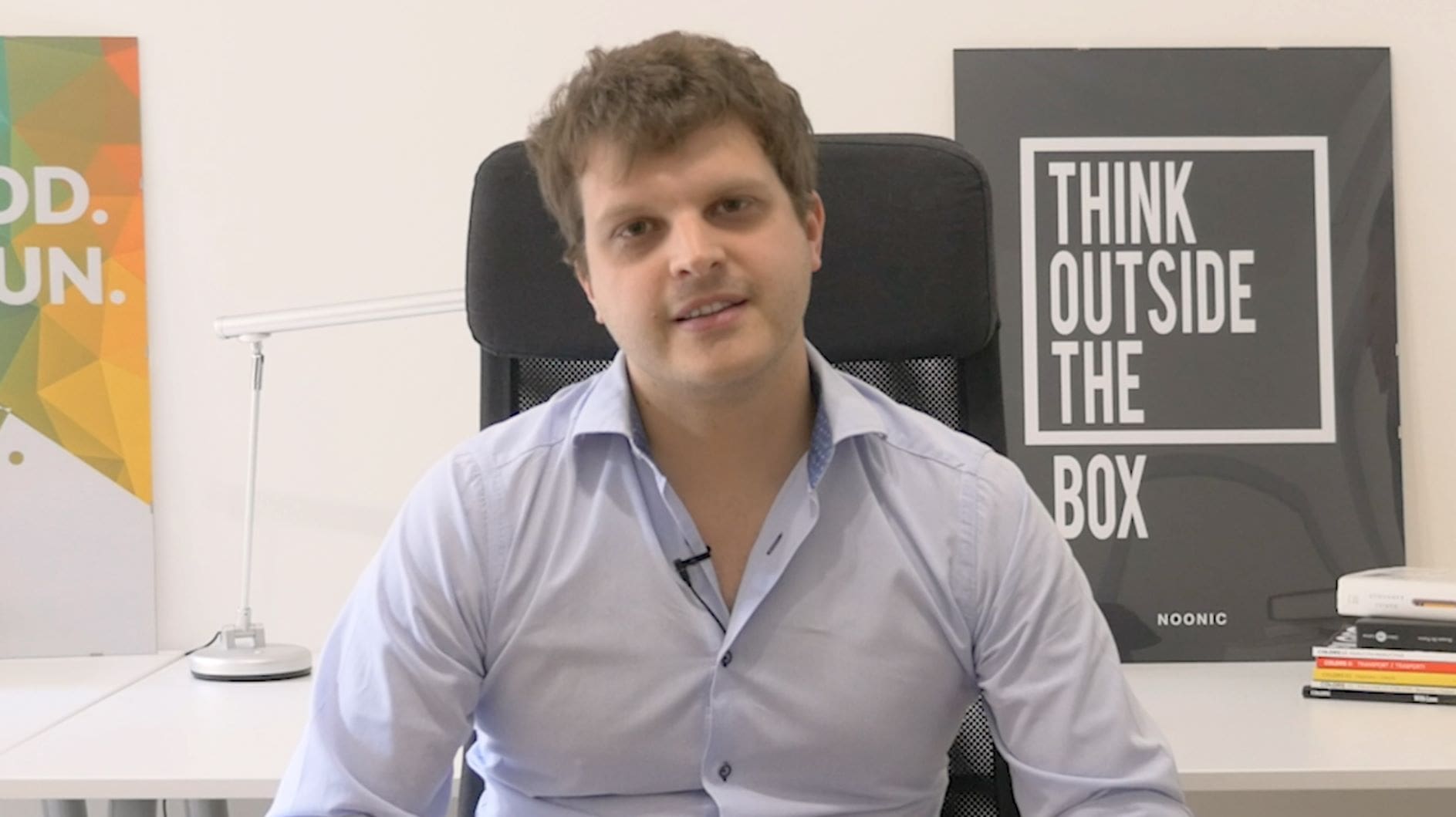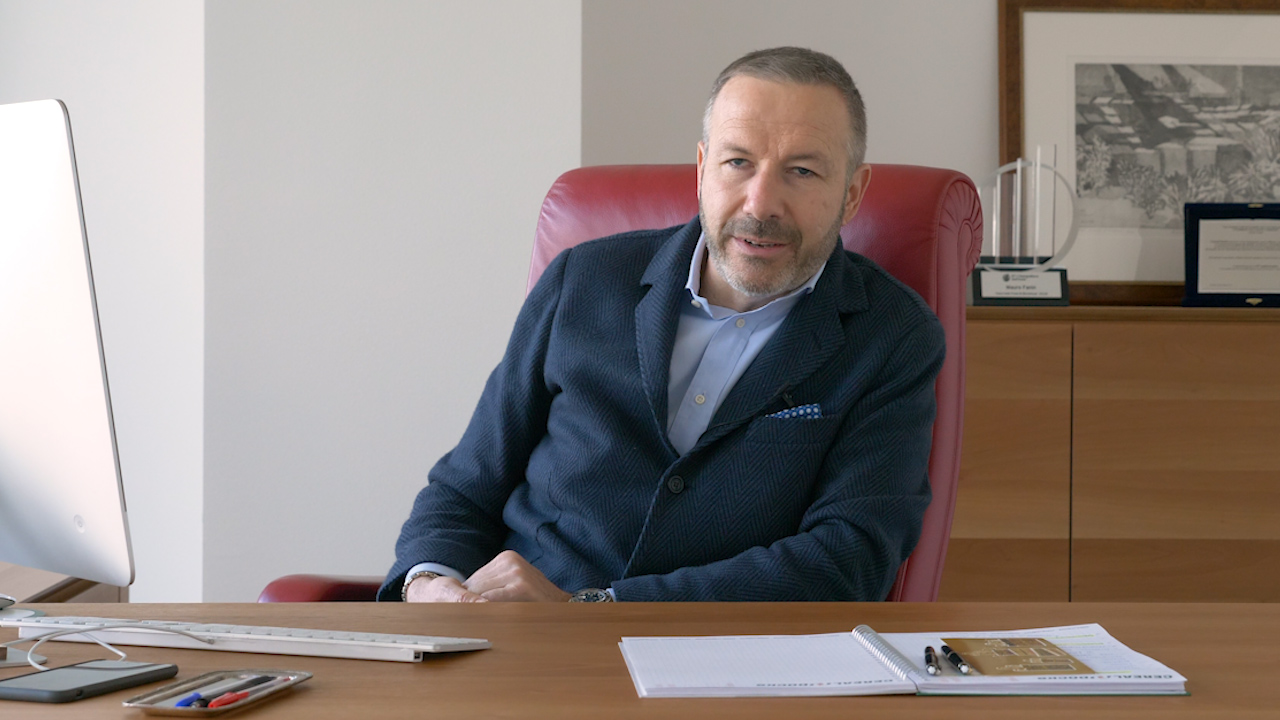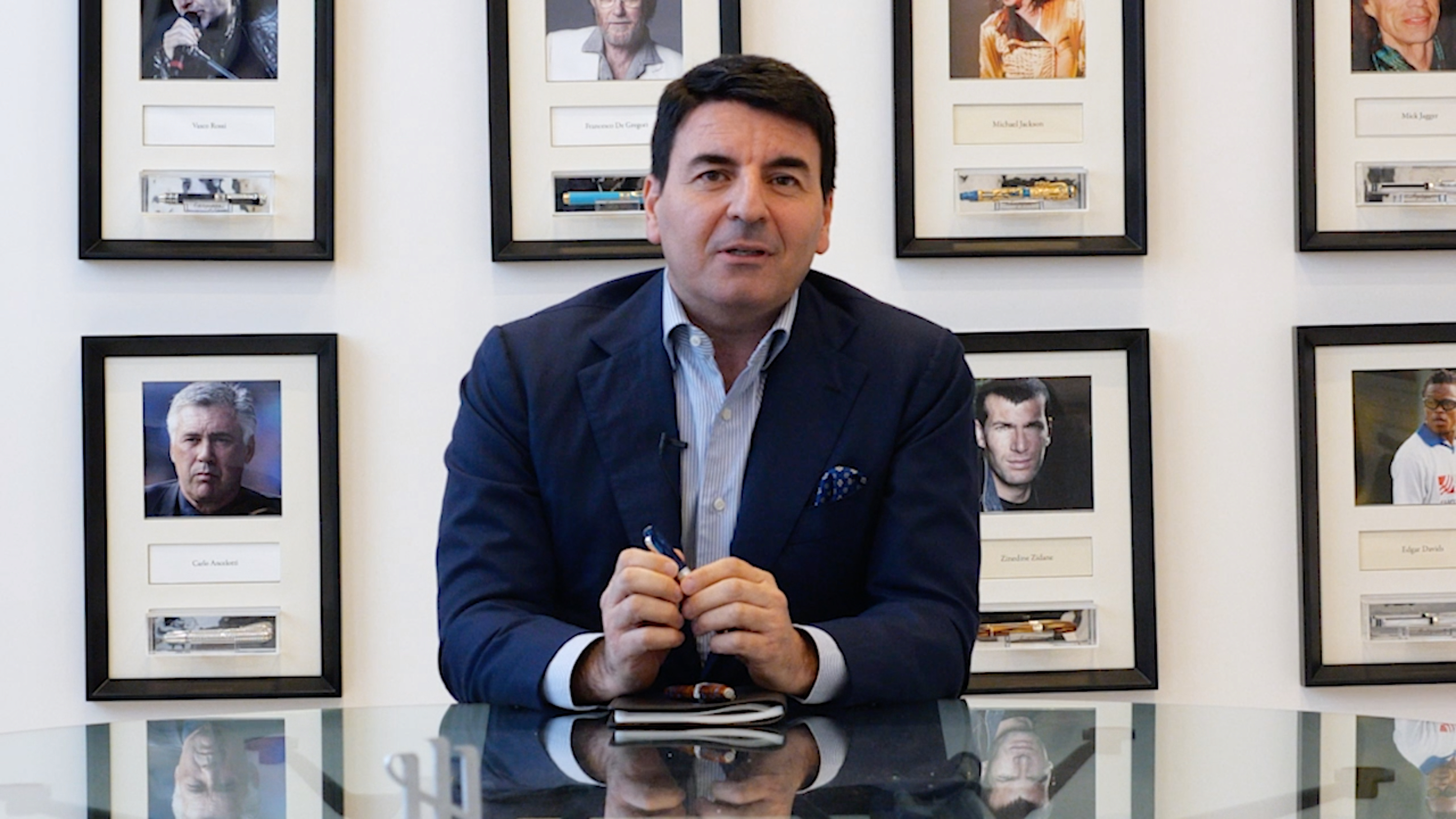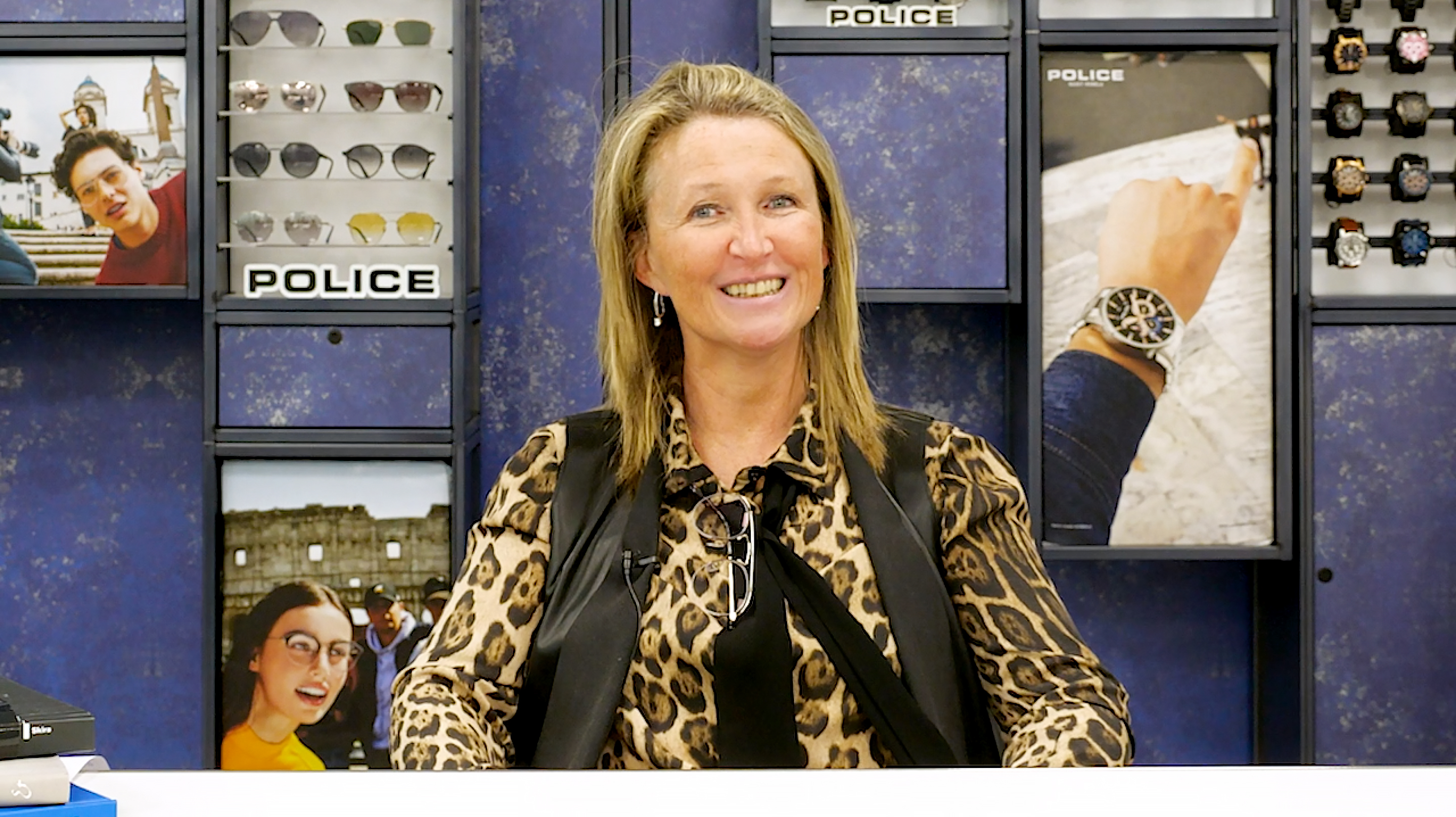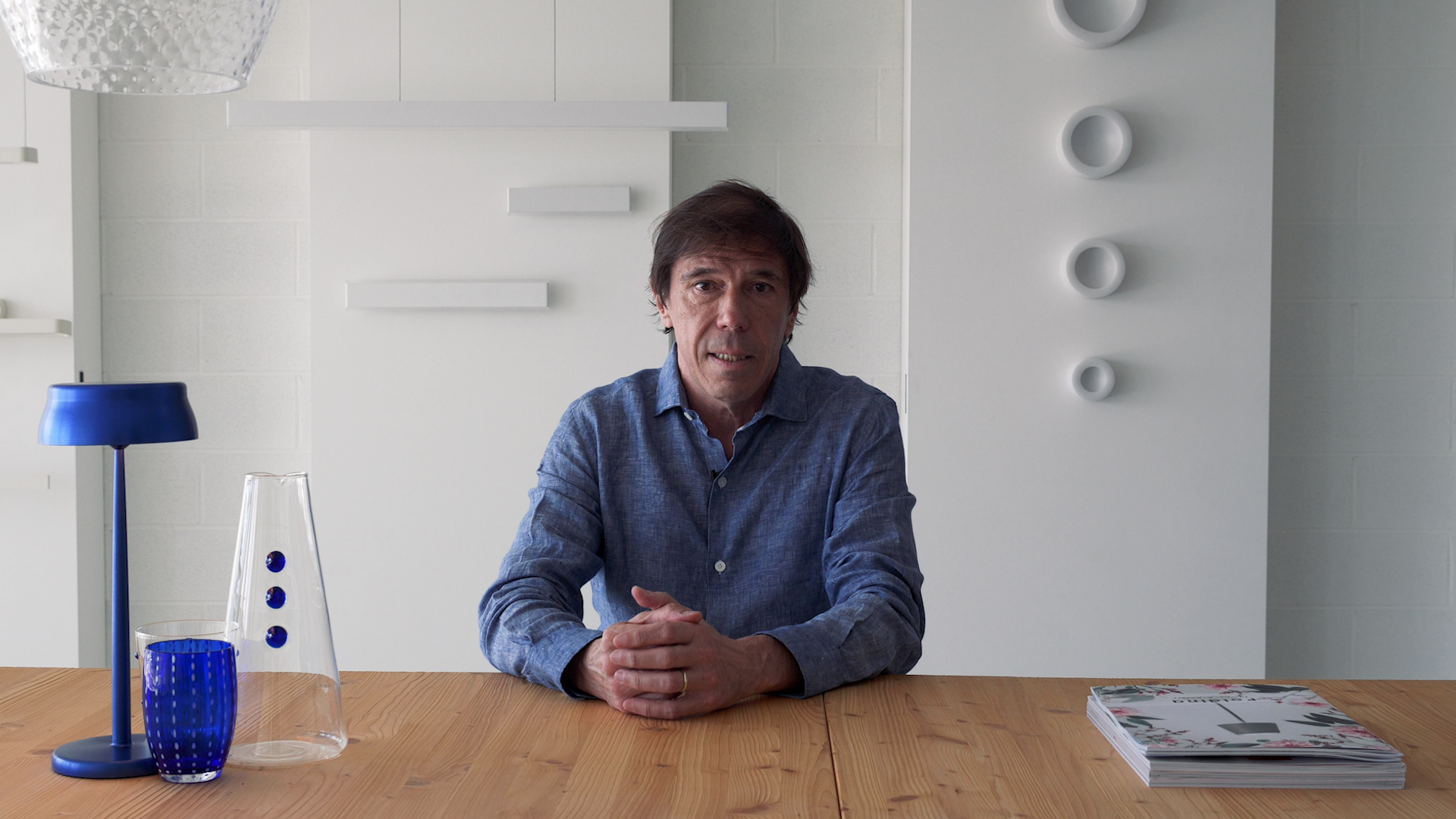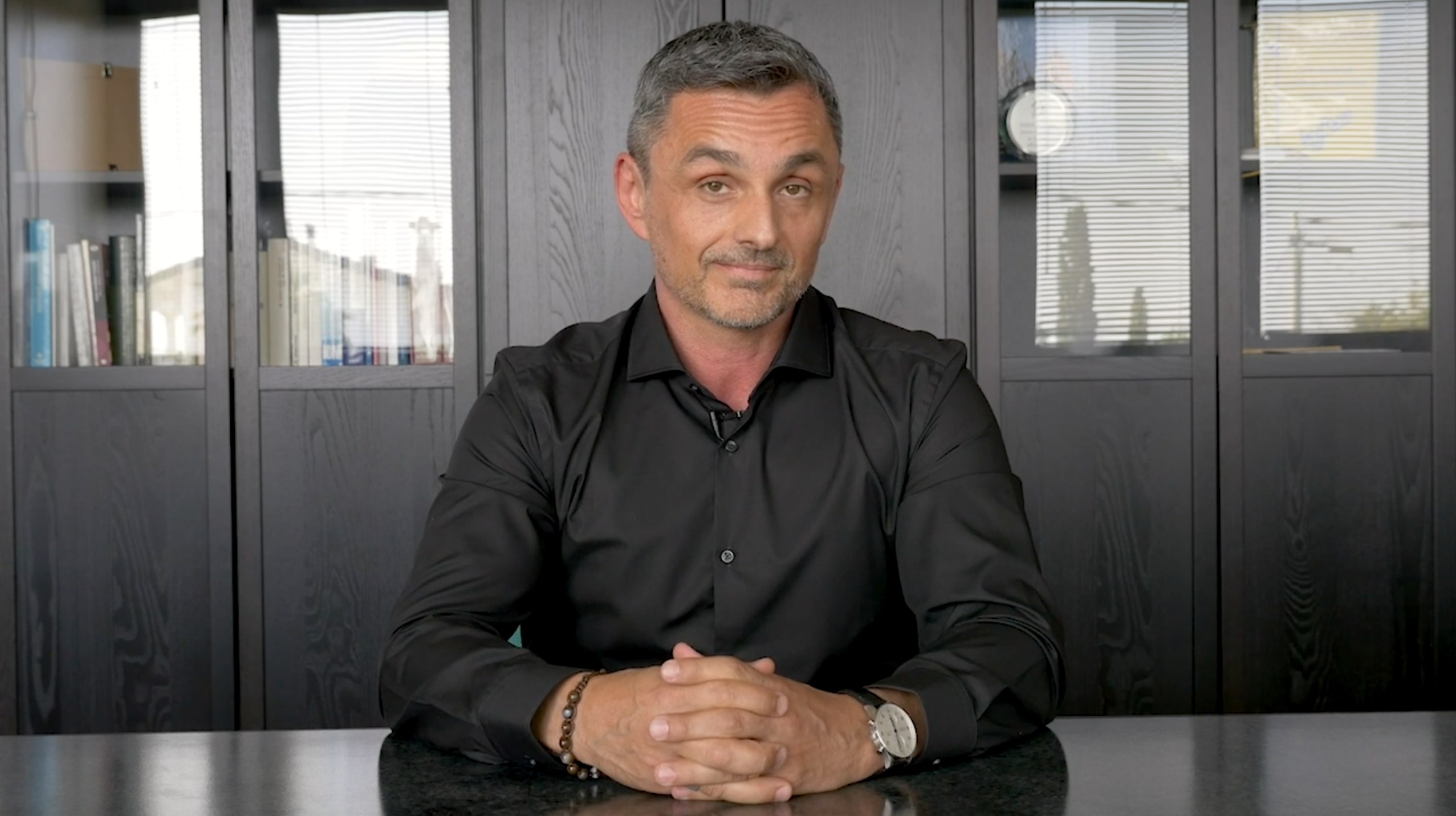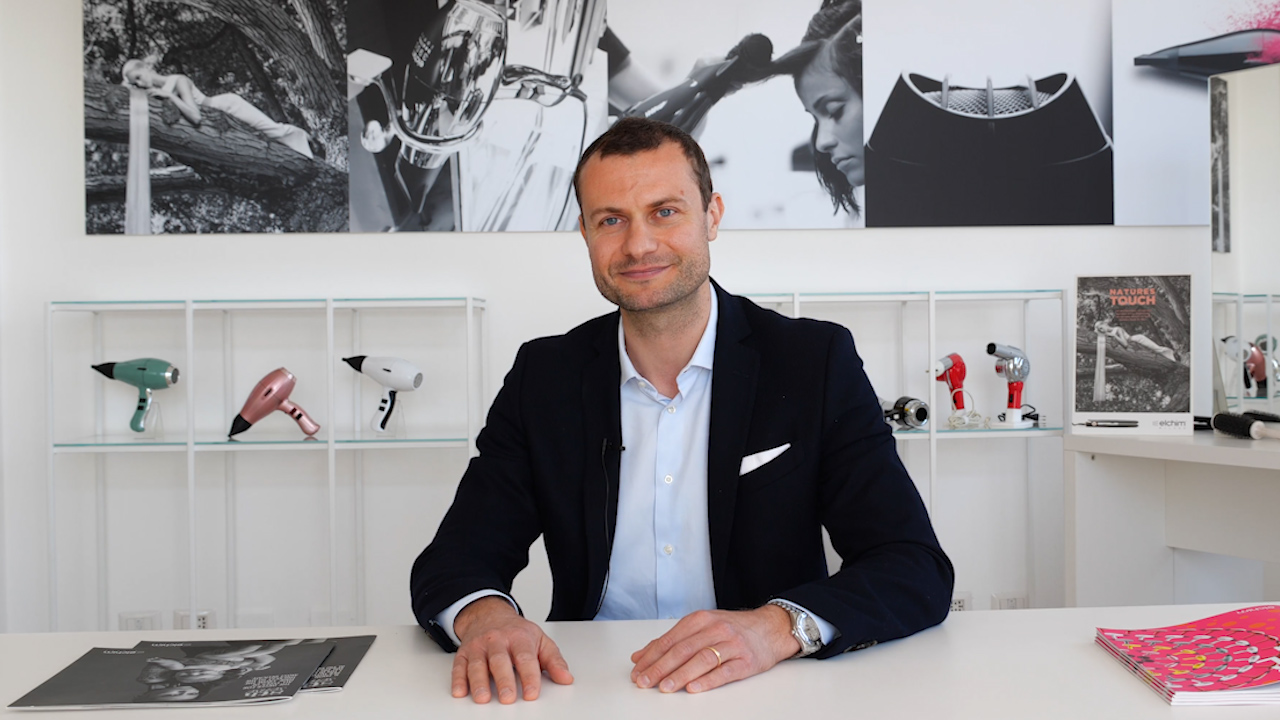The entrepreneurial adventure begins
I’m Nicola Possagnolo and I’m the founder of Noonic. Noonic is an italian tech company with the goal to help companies to innovate and try to re-position themselves to take advantage of all the opportunities from the digital world.
We are relatively young. Six years ago, at 22, I decided to quit Benetton, where I was working, to leave and create my dream. People say that you either cultivate your dream or you work for someone else and make his own dreams. So, I decided to start with my two partners, Nunzio and Sebastiano, and jump on this adventure. At 22, we went to India, and we opened our first office, trying to overcome a series of problems, from finding the office, finding employees, understanding how to build something we had no idea about. Because reading books and studying can help but
when you are on the field it is totally different.
Our only goal was to create a hub with the best talent and the best people we could meet in our journey, with the goal of bringing innovation in the market, in a tangible manner.
We started our development, we found our first customers, within six months we had almost 25 employees in India. My partner and I went up and down from India and we started to understand the actual problems and limits of having a company on the side of the world. Until one year ago, or a year and a half, when we decided to return to Italy.
We made a big investment, trying to hire people here in Italy and starting from scratch, but with a fairly important cultural baggage. Then, we quickly found ourselves having almost twenty employees here in Italy and then one company in India, one in London and here, divided between Padua and Milan. It’s been 5 – 6 extremely interesting years, because you start by having a dream and actually think about what your future could be, and you suddenly find yourself having a number of people who believe in you, that they want to go on and follow what you actually say. And then other people, customers, or partners, who believe in what you say and have verified that actually everything you have done over these years really brings a benefit to their business, and this gives us the chance to grow and we are growing at a speed that is unbelievable, for a company so relatively young.
The money to start
We could say, using the “startupper” jargon, that we went with “bootstrapping”. What do we mean? We have self-financed. The reality is that at 22 we did not have the possibility to have enough savings from previous jobs and we had no interest in asking money to lenders or to “friends and family”, and therefore our parents or friends. Then we were simply persuaded that speed would have made the difference, and that we had to leave. The goal was to find the first customers to be able to pay the first three months of [our stay in] India. Then hiring the first people, knowing that either we could found new customers or we could not survive.
Therefore, we started with the first 10 thousand Euro of signed contracts and we begun to hire, we took the office, we did the first interviews and we started. Then we were lucky because other important customers contacted us. Our story was interesting, the little boys who left and went to India to bring innovation from one side of the world to the other. And they started to have more and more trust in us. So technically, what I often say to all those who want to start a company is that potentially money is the smaller problem and it is much more important to understand where one wants to go and what is the vision for which you look for money or invest yours. Then the reality is that most of the time, those who start a business would never go to a bank, they would never use their own money, they always seek money from third parties. But the reality is that, if you’re making your own investment, that completely changes all the rules of the game, and you run much faster, you know that speed is the first value, opportunities in a research, saving time is important, not necessarily from the financial side.
The economic side becomes important for sales. Knowing how much you have to sell, what is your “burn rate”, understanding where you have to go and what you need to get there. And then you gradually try to finance yourself or seek capital to bring forward this idea. We fortunately managed to stay sustainable and we still are, simply trying to give, to use a positive cash flow and by self-financing every activity we have done.
A negative and a positive event
I am living a life that is extremely fast and then thinking about defining what is a positive and a negative element is extremely difficult. I simply find that every day I have a positive mood and then the anxiety comes and it could turn everything into something extremely negative; and I believe this is the life of the entrepreneur, of the one who risks everything every day to try and build something.
So, the ups and downs, and feeling one day like the king of the world because you have closed the biggest contract in your history, and the day after you motivate the team, but then you realize that the customer will not pay or that something simply goes wrong. But this is all part of the game, reality is that life is very difficult and especially when you are playing to be as fast as possible, and you’re always on the razor’s edge.
If I had to tell about my experience, I think the most difficult moment, actually, the series of more difficult moments, was leaving everything, without having a handhold, going to India, exit the airport, being just you and your partner with the suitcase and feel like 2000 degrees, the taxi not arriving, the dust, then entering a taxi and going to a hotel and starting screening 500-600 curricula and not finding the person. And not being able to understand how to actually examine those curricula, because you are 22 years old, it is not clear how to understand if a person of 40 years old is prepared or not to do that what you want to do, to change the digital world. And then go and see the offices, go to these places, in the midst of these technoparks where you arrive, take the elevator, fifteenth floor, seventeenth floor, fortieth floor, get to the rooftop and they’ll tell you “well, this will be your office” and you say “well there’s nothing”, “No no no, but in a month it will be ready”. I have three months of cash, I cannot actually risk that it won’t be ready because I could probably die and no no no no worry, no worries and then in the end you know very well that that office would never arrive and so you look for other places, look for them to understand continuously what is the thing that could go wrong and then, however, you suddenly see that you begin doing things and things are fine, and hire those people, some of them who should have been extraordinary, with outstanding curriculum, they have worked in Nokia, in Google, in Facebook then they turn out to be the ones that hold back the company, and instead those young people who want to rock the world, and they carry you forward superfast and you say, “Well, at least I just did something right” and so it’s all about understanding how to overcome difficulties, about believing you can make it and if you start from the assumption that failure is not an option, then it is absolutely possible, things happen.
And so everything revolved around this, the fact that every day opening an office in the middle of nowhere seemed an impossible mission, and the day after the new mission was even worse. But it is part of the game and I think this was the lesson I learned, and the fact that the positive parts are simply the negative parts seen by another point of view or simply after a few days, a few months looking back [and thinking]: “doing that I managed to reach that goal”. Taking for granted that then things actually become possible when you believe in them and start from the assumption that you can do it.
Doing business in Italy
I believe the real question is why doing business with Italians?
I believe and I say it often, when I go and talk at events, that we, Italians, are extraordinary people, with extraordinary capacity. We live a life that is completely uphill and learn to survive before learning how to live. We try to think about things, trying to make all the ABC plans to understand how to avoid mistakes, or if something goes wrong, how to solve that problem.
What is the direct consequence? That we develop an ability to look at things and have a lateral point of view on the problems that allows us to survive in certain situations that would seem impossible for most other people. This thing happens when we go abroad. Everyone hires Italians and Italians who arrive abroad, and are those who have developed this point of view, they have a downhill life, because when you get to a country where things work in normal way, where life simply gives you what you invested for, you run, you run very fast, you can have opportunities, when you do something you have merits and move on and this happens, so that you become the CEO of a super company or you can make a career with salaries you would never have seen in Italy. So, the second point is why doing business in Italy? Because you find these talents and then above all the Italians who come back to Italy, who want to return to Italy. They developed, when they were here, the capacity for survival, when they go abroad, the hunger of reaching the goals. When they return, you can get some people who are extraordinary to work with, hungry, who manage to see the opportunities that Italy gives you, that are totally out of the ordinary.
We are a country that in some areas, which can be fashion, that may be the food, which can be design, we have dictated the law for decades on a global scale, there are opportunities to be taken that are endless.
The problem right now is understanding the point of view to uncover the opportunities, to see what is opening up in front of you and trying to understand how to catch them as fast as possible, getting help from those people we try to surround ourselves with every day, who actually think in different way and we think we are exceptional.
The key traits of an entrepreneur
I believe an entrepreneur is a person willing to live a few years of her life as nobody would do, and then live the rest of her life as nobody could do. This is a famous saying, obviously it’s not mine, but I totally agree with it. It’s difficult to wake up every morning, have a load of responsibility that probably nobody would be able to manage and yet know that there, in front you, you have a goal you want to reach. It is extraordinary to think that people are awarded in public for years of sacrifices they do in private. When the super athlete competes at the Olympics, the difficult part is not the race, and everyone assumes that the race is the simplest part, the real problem is what’s behind, the training. Phelps once said in one interview that he was trying to double or triple the training compared to everyone else and then when one arrives and wins it’s not like “oh it happened”. Objectively, he trained every day in an extraordinary way, for reaching that goal.
So, what are the characteristics that make an entrepreneur more or less than successful? Perseverance, that is, knowing that no one gives you what you actually ask, but you have to go there and get it, knowing that things never go as you expect, but they are there and you just have to imagine them.
Leadership, that is, people who follow you, but they do not follow you because you ask them to do things, but they follow you because they follow what is your goal, your vision and then try to speak correctly with the people who work with you and try to convey the enthusiasm that moves yourself. Many times this simplifies the work in the company, and trying above all to find out with them how to move, how to convey to people what you believe in.
The third point is trust, that is created between you and the people around you. Your employees, your partners, your customers, and yourself, because indeed this is the point that makes a difference.
Of course how much you run matters, why you run, what you are doing and where you want to get, knowing that everything will be fine, knowing that you will be transparent and that you will always follow the goal, trying to carry everyone with you, and an idea that is why started doing things, knowing that then it can be changed, but in the end it is really about being persistent, leader and having the trust of the people you move.
The future for the new generations
This question gives me some trouble, I think. I try to give a series of suggestions. I do not consider myself to be successful and I honestly believe I’m still the phase where you need to push 2000% to get to my personal goals. But I try to give those that I think are the five points that move me every morning, hoping they can help.
First point: raise the standards, so every day try to do something, move and try to bring the bar a little higher, what we said before about training, to do more, if you do more, the results arrive, people understand and then you will see that nothing will be taken for granted, and on the other side the results will start to arrive.
Two: be curious, that is, the point of view of curiosity and imagination for trying to see things from a different point of view. It will make you really a different person in the workplace. You have the extraordinary opportunity to be born at a time when your skills, probably, they will be better than those of your managers. You started using technologies that your managers did not know how to start using and then you have a competitive advantage that is extremely more advanced than all the others. The point is to understand it.
Three: personal success. People think, take it for granted, that making money is success. I believe that instead we should start to understand why every person starts, wakes up every morning and understands which way she wants to go. Understanding what are the things that make you moving on and say “I want to have more”, I want to feel better, I want to reach a certain goal, and then money naturally comes. That is something ephemeral that then comes naturally when you do something that you actually like and for which you wake up super excited every morning about achieving a certain goal.
But it is important to have very clear priorities in life, being interesting and therefore being interested. Trying to get to give an interview with someone in a proper manner, trying to do things, that is, I try to do as many things as possible, because, in my opinion, when you talk about something interesting with someone, whoever it is, he looks at you with different eyes and when that person is your future employer or a girl in a bar, she looks at you with eyes that seem to actually be interested, you will see that everything is easier, a lot easier. The problem is that, in my opinion, some people think that things just happen. It is easier to be a victim rather than create the conditions for making things happen. Start, get out, do some experiences and you’ll see that when you start telling people, in every moment of your life everything will be simpler, you will have a totally different point of view.
Five: do good, have fun, make money – in this order, that is, you do good, have fun and then the money comes. If I think that 99 % of the people hope or believe that one’s dreams come true like that, staying on Facebook and not doing anything to make them come true, it is obvious that it is easier. Because if you’re part of that 1% that does something, everyone else will look at you in a strange way, and say “look how good he is”. It’s actually not true, that is, they keep saying you are very good and it is much easier to think “I won’t ever be like him”, rather than saying “if tomorrow morning I will wake up, every morning half an hour earlier to read, to discover something new, things happen naturally”.
So, these are five points, trying to carry them forward every day, understanding every day what I did to accomplish these points in my life and then things happen, at least I hope.

